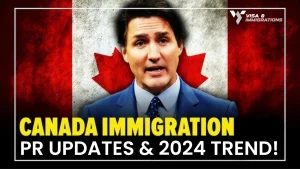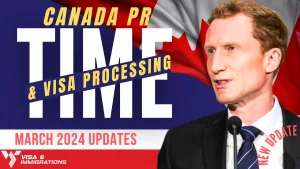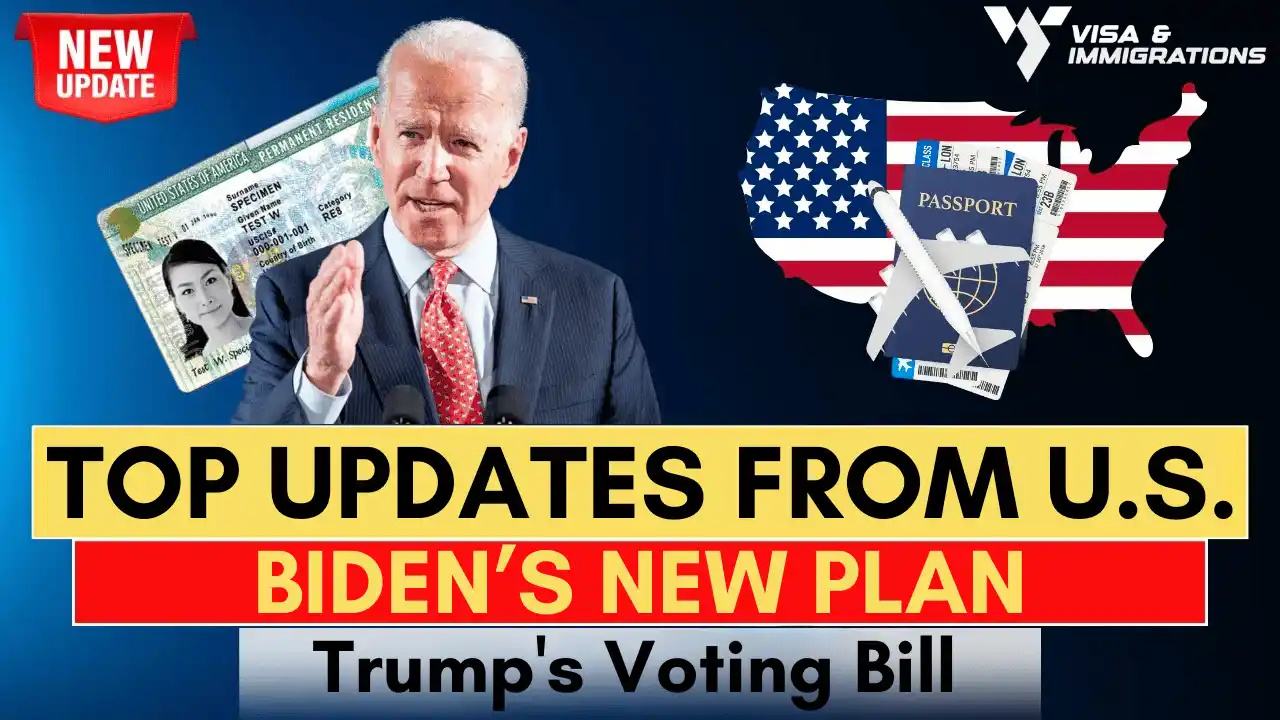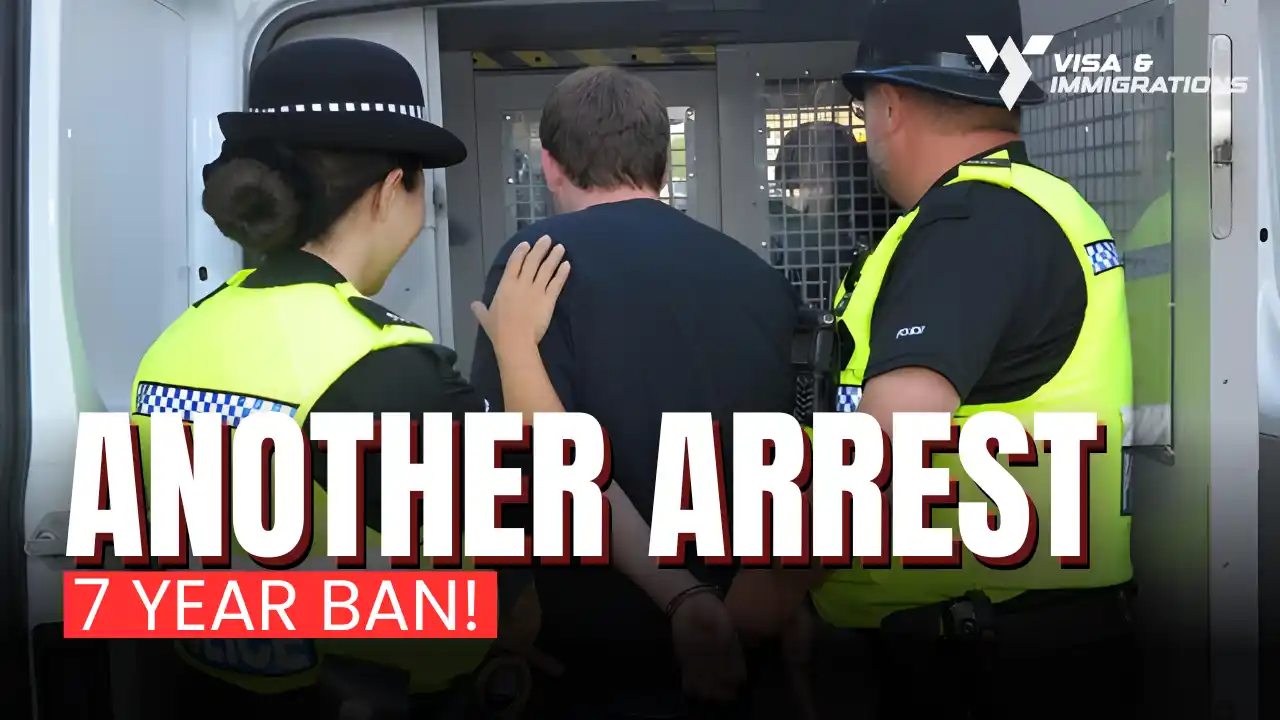Canada Shifts Permanent Immigration Applications To Online
In today’s blog, we will take a look at the recent changes made by Immigration, Refugees and Citizenship Canada to the Permanent Immigration Programs.
In an effort to enhance client service, Immigration, Refugees and Citizenship Canada (IRCC) has completely digitized the process of application submission for Canada’s inland and outland common-law partner and spousal sponsorship programs.
Previously until September 23, 2022, IRCC allowed applicants to not only file for permanent immigration programs such as spousal sponsorship online but also gave candidates other options for filing for these programs. Now, applications for inland and outland spousal and common-law partner sponsorship can only be filed online.
Per IRCC, shifting to an entirely online system is more convenient for customers and gives them the flexibility to apply from their devices, making it a lot easier for them to know the status of their application by receiving confirmation immediately that they have successfully filed their application. This will be supported by the Permanent Residence Portal, which is already active since March 32, 2021 and has already permitted some immigration candidates to file their applications for other programs online.
It is essential to remember that candidates who require accommodations and are unable to use the online system can get in touch with the IRCC and request an alternate option to submit their application. If no such request is made, any application that is not filed online after the transition period will be rejected and returned to candidates.
Requirements For Eligibility For Common-Law Partner And Spousal Sponsorship Programs
To qualify as a sponsor for inland or outland spousal and common-law partner sponsorship program, you must meet the following criteria:
- You should be 18 years of age or older
- You must be a Canadian citizen, a permanent resident residing in Canada, or registered under the Canadian Indian Act
- You should be living in Canada or intending to return to the country
- You should not be getting any social assistance for any other reason than a disability
- You should be able to take care of your basic needs and provide for your spouse or partner as well and, in case you have children, then be able to provide for your dependent children as well
- You must be able to financially support your spouse or partner
- You should make sure that your spouse/partner will not need social assistance from the government
In addition to this, the person coming to Canada through the sponsor should be 18 years old minimum and should pass all the necessary medical, security and background checks.
What Is The Application Process For Spousal And Common-Law Partner Sponsorship Programs?
Before applying for spousal or common-law partner sponsorship, both the sponsor and the dependent candidate should make sure that they fulfill all the eligibility requirements.
Also, it is essential to note that applying for the common-law partner and spousal sponsorship requires the two applications to be filed at the same time, one application from the Canadian sponsor to sponsor their partner/spouse and the other made by the dependent.
The application process to sponsor a spouse is based on four-step which are as follows:
- Visit the Canadian government website to find the application package, which includes precise instructions on how to accurately complete the application
- Pay the fees for online application, including:
- Application processing fee for all the included persons
- Fee for “Right of Permanent Residence”
- Biometrics charges, and
- If applicable, other third-party charges
- File your application through Canada’s Permanent Residence Portal by following the steps for submission provided in the guide you downloaded
- Providing the necessary supporting documents when asked
What Are The Transition Dates For Other Permanent Residence-Based Immigration Programs?
Online transition dates for other permanent immigration programs/categories are as follows:
- September 23, 2022: Provincial nominee program (non-Express Entry); Quebec-selected skilled workers; Sponsoring a spouse or partner; Sponsoring an orphaned sibling; Sponsoring a dependent child; Sponsoring an eligible relative, niece or nephew, or grandchild; Rural and Northern Immigration Pilot; Adopting a child through the immigration process
- October 7, 2022: Self-employed people (Quebec); Quebec-selected investors; Quebec-selected entrepreneurs;
- October 14, 2022: Agri-food pilot; Temporary resident permit holders applying for permanent residence; Start-up visa;
- October 21, 2022: Home Support Worker Pilot; Humanitarian and compassionate grounds; Self-employed people (federal); Home Child Care Provider Pilot (reopens to new applications on January 1, 2023);
- October 28, 2022: Atlantic Immigration Program
This is the end of today’s blog update. We hope you found this blog useful. Please don’t forget to support us by subscribing to our newsletter and sharing this blog with your friends and family on Facebook, Whatsapp, and Twitter.
Recent Posts:
- Top 5 Easiest Ways To Immigrate To Canada
- New Features In Express Entry Canada System
- Top 20 Highest Paying Jobs In Canada 2023
- Canada PR Programs 2022 2023
- The Immigration Lottery For PGP 2022 Has Been Completed













3 thoughts on “Canada Needs More Immigrants In 2023-2025”
very nice
it’s ok
Very nice